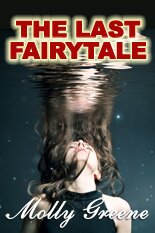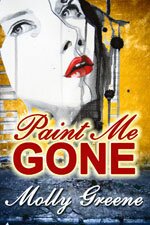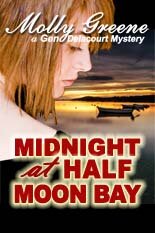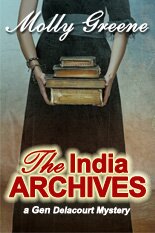We talk a lot on this blog about self-publishing, but some of us have other goals. Meet Sue Coletta, an author who is holding out for the traditional path, and she’s here to tell you how to go about it!
 We all have different dreams. As long as I can remember I’ve always dreamed about seeing my name on books in the library and in stores everywhere. I applaud self-published authors, but I never questioned which publishing route I would take.
We all have different dreams. As long as I can remember I’ve always dreamed about seeing my name on books in the library and in stores everywhere. I applaud self-published authors, but I never questioned which publishing route I would take.
So, after I finished writing my first novel, I researched how to make that dream come true.
Enter: the query letter
One of the hardest things for me was crafting that first query. My mind just didn’t work that way, condensing my three-hundred page novel into a few sentences. It took countless hours of reading successful queries – you can find hundreds on Query Shark – writing and rewriting it a thousand times until I got the hang of it. Four novels later and I’m only now happy with my query.
Get feedback
When I completed my first novel I’d been writing in a vacuum for years. Meaning, I had no critique partners, no beta readers, no editor. No one had seen my work besides a trusted friend and my husband, both of whom raved about it. Of course they did! They loved me. This was a huge mistake. My advice to anyone regardless of publishing path is to find someone (who doesn’t love you) to read your work. You can’t go this alone. The writing community is such a supportive group. There’s always people looking for someone to swap beta reads. But you also need to be careful of those who give bad advice. I’ve made this mistake, too.
A few things to keep in mind:
- Find someone with a similar skill level or who knows more than you. You don’t want to spend your time teaching.
- You don’t want someone who “thinks” they know more than you when they really don’t.
- You DO want someone who will give you constructive criticism the right way. Meaning, always say something positive before something negative to lessen the blow. It’s not easy having someone rip apart your work. So have it be someone who is mindful of your feelings. One of the best ways to find a critique partner is to join a writers’ group. That way you’ll get a sampling of how they critique. You’ll also get to know their personality, quirks, bad writing habits.
Find an agent: Research
Once I did all of the above I was ready to approach agents. Who would I sent my “masterpiece” to? There are many great resources to find agents who represent your genre. Some are: Literary Agent Undercover’s Directory of Literary Agents, Publisher’s Marketplace, Jeff Herman’s Guide to Publishers, Editors, and Literary Agents. There’s also a lot of scammers out there so by using one of these directories you can save yourself future headaches. Also, check out Predators and Editors and Writer Beware. Because there is no board governing literary agents, and I’d heard a lot of horror stories, it was important to me that the agent also be a member of AAR (Association of Authors’ Representatives). In order to become a member the agent needs to meet certain standards and adhere to a canon of ethics. The standards are:
- Prospective members must have at least two years as a full-time working agent.
- At least ten reportable sales over an 18 month period.
- Primarily responsible for executing publishing agreements, translation or performance rights in these properties.
- Applicants need to be accompanied by two letters of reference from current members.
By querying agents who are AAR members, I was ensuring I wouldn’t get a lazy agent who sat on my manuscript for years before trying to sell it. It happens! Tip: if someone asks for a reading fee– run!
Approaching an agent
You only have one shot at a good first impression. The agent world is not a big one and they do talk to each other. So, always be professional. A good rule of thumb: If you wouldn’t say it to a potential employer don’t say it to an agent. Agents look for reasons to reject. Don’t give them any.
- Always follow the submission guidelines on the agent’s website. If they ask for ten pages, don’t send fifty.
- Don’t ever send an agent a link and tell them to read pages on your blog.
- Don’t tell them your family and friends loved your story.
- Don’t tell them you’ve been writing ever since you could hold a pen.
- Don’t tell them you just know this book will be a best seller.
Do I really need to talk about rejection? It stinks. It hurts. But it’s part of being a writer. Don’t just toughen up, grow rhino skin. You’ll need it if you choose this route.
MSS Requests
Clearly the best part of querying is getting requests for the manuscript. I felt like someone was finally paying attention to what I had to say. All my hard work was being recognized. When a request rolls in I send off the manuscript or requested pages right away, following the guidelines. Tip: there are usually different guidelines for requests than queries.
Keep the faith
By setting small goals along the way toward that big dream I kept the dream alive, really felt like I was achieving what I’d set out to do. For instance, whenever I get a request I reward myself with an hour of playtime on social media, a walk with my dogs, an enormous ice cream sundae. Something that I enjoy, a way to tell myself, “Good job!” By doing so, it keeps me motivated, keeps me forging ahead and focused on my goal.
The waiting…
Really is the hardest part. Here’s where I’m at now. When you’re waiting for an agent(s) to read your manuscript time seems to stop. With four novels out there I’m getting used to it, but that doesn’t make it any easier. The best advice I can give is to write another book. Writing and reading daily helps hone your craft. The more you write the better you become. It’s not rocket science. Practice really does make perfect.
Things not to do while waiting…
- Don’t stalk the agent(s) on Twitter, Facebook, or other social media sites.
- Don’t email the agent(s) and ask how long it will be till they’re done, or if they’re enjoying your book so far.
- Don’t try to engage the agent(s) on their blog.
- Don’t post to your own blog about the agent(s) taking forever to read “one little manuscript.”
- Don’t complain publicly about previous rejection letters you’ve received.
- Conversely, don’t brag publicly about all the requests you’ve been getting.
- Don’t ever call the agent(s).
By doing any of the above you’re actually lessening your chances of the agent(s) wanting to work with you. Okay, I’ll admit to doing the first one early on. But it only made the waiting so much harder.
Things to do while waiting!
- Write another book.
- Go to writing conferences/workshops.
- Build up your social media platform.
- Keep querying other agents. Chances are the first agent to request your manuscript will NOT be the agent who offers representation. At least it wasn’t for me and most others I know.
- Take another writing class. I don’t know about you, but I love writing classes. Admittedly, I may have a small addiction to them.
- Be humble and professional.
- Increase your ranking in Google. Molly just wrote about things like this in her post, What Should Authors Blog About? Agents want authors who are Googleable. They will Google your name. Make sure it appears on the first page. This was a real nail-biter for me, because “Susan Coletta” is a well-known non-fiction writer. That’s why I go by
“Sue Coletta,” which is what my friends call me anyway. Now, I’m proud to say I’ve managed to push “Susan” to page three. If you’re out there: Sorry!
- Create a giveaway on your blog to start an email list. Publishers and agents want authors who can market their own books. By having a large following AND an email list you’ll give yourself an advantage over those who don’t.
- Get your name out there. Ask people who have a large following if you can guest post. Take Molly for instance. Molly read an interview I did with an undercover operative on my blog and said, “You should come guest post on my blog sometime,” probably to be nice. (Note from Molly: not true, lol!)
- Do everything in your power to make yourself look “profitable,” that’s the key.
 Well, there you have it. Just keep in mind the traditional path into publishing is not for everyone. It takes time and patience. Remember: Getting published isn’t luck, it’s a decision. Work hard, hone your craft, and you’ll be well on your way to being traditionally published.
Well, there you have it. Just keep in mind the traditional path into publishing is not for everyone. It takes time and patience. Remember: Getting published isn’t luck, it’s a decision. Work hard, hone your craft, and you’ll be well on your way to being traditionally published.
Sue Coletta is a proud member of Sisters In Crime. She’s authored four novels, most psychological thriller/mysteries. She blogs at www.crimewriterblog.com, is co-administrator/contributor to an authors’ blog, Prose & Cons with 24 trad-pubbed authors, and is a contributor to www.venturegalleries.com. You can find her on Twitter @SueColetta1. Grab your free copy of her 13 page booklet 50 Ways To Murder Your Fictional Characters.
Note from Molly: Check out my novels on Amazon, join my Reader’s Club for freebies and book news, and follow me on Twitter. This original content is copyright protected. Thank you so much. Mwah!












Comments are closed.